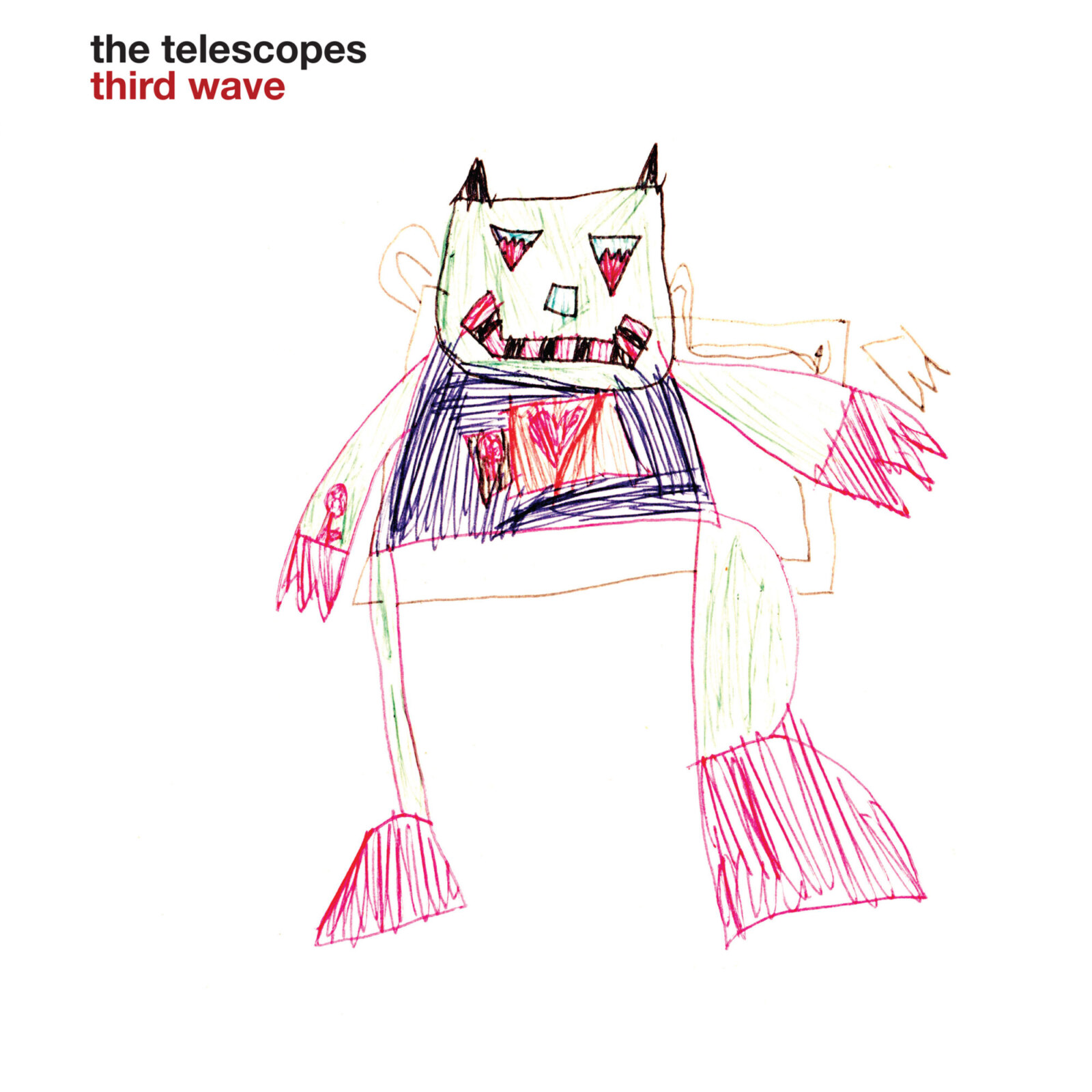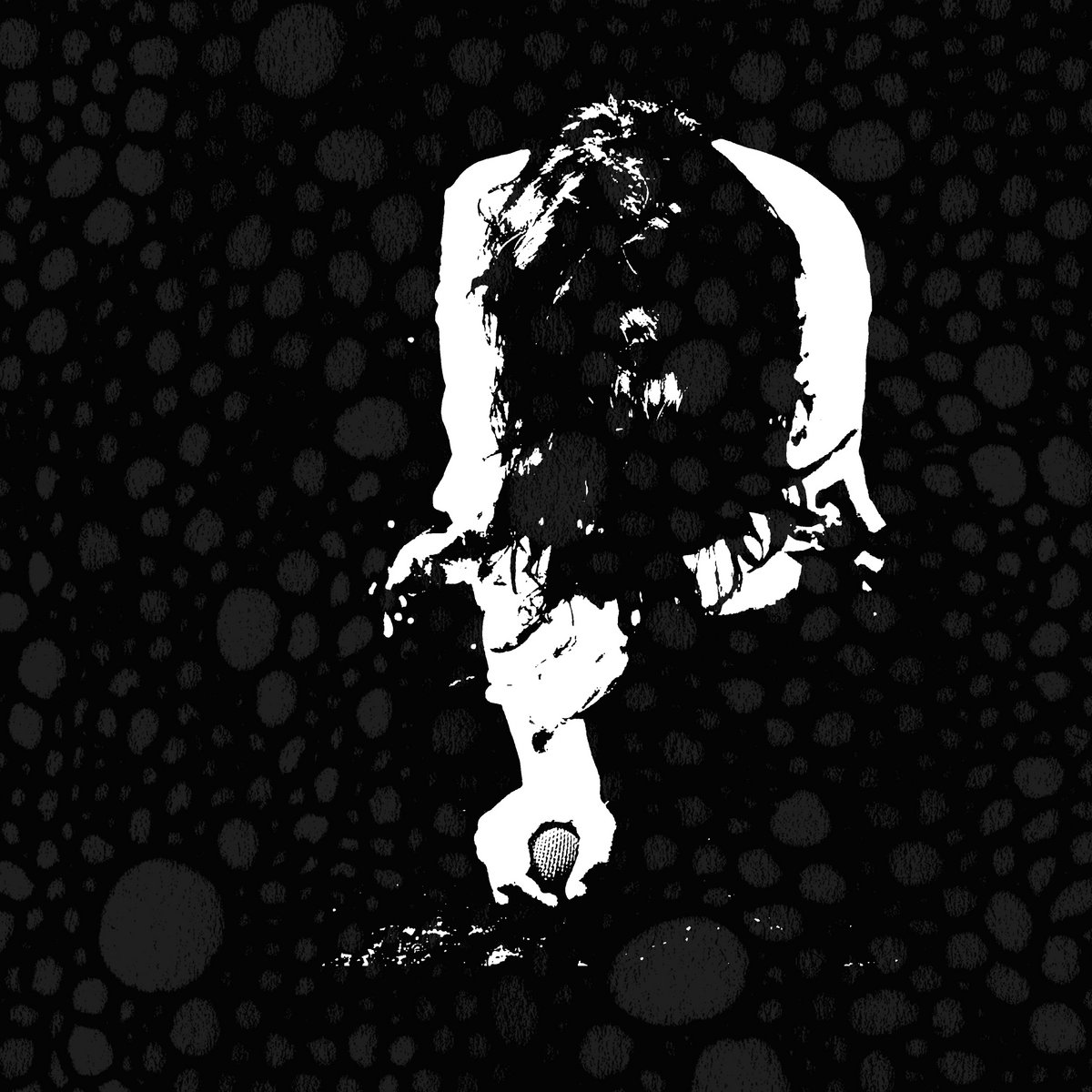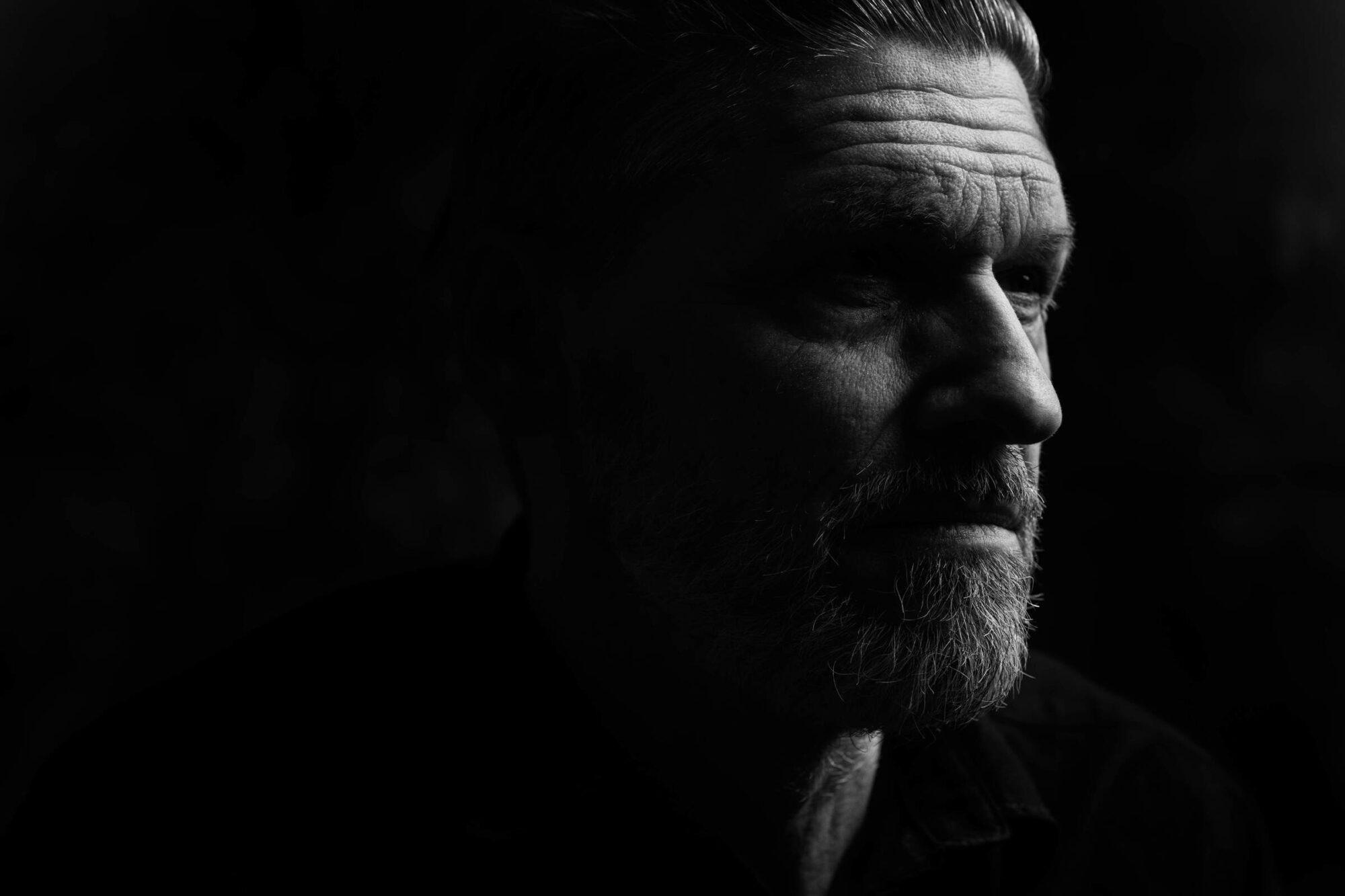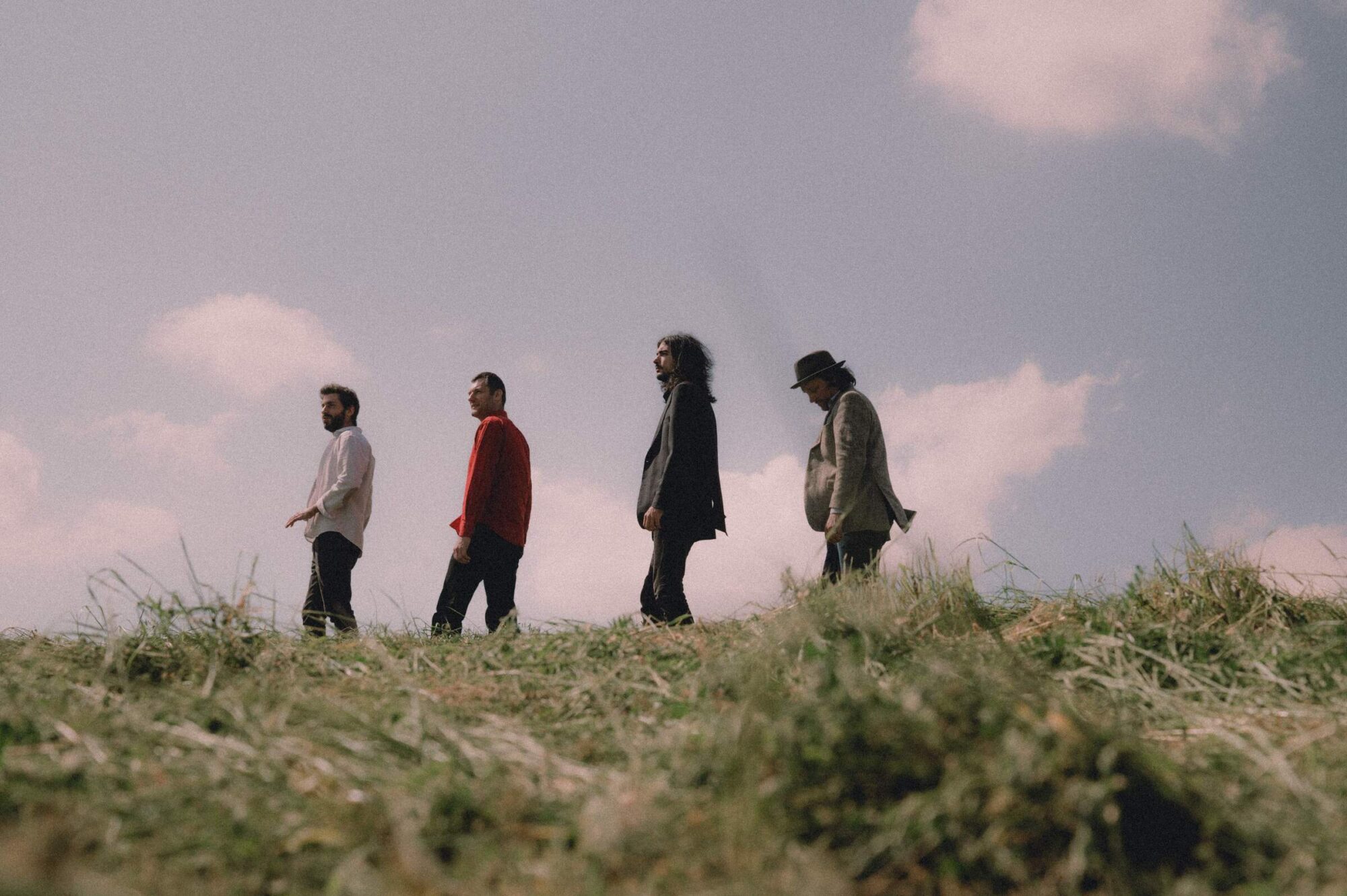The Telescopes | Interview | Exclusive Premiere of ‘Third Wave’
Originally released in 2002, ‘Third Wave’ heralded the return of The Telescopes after a 10 year hiatus. The long awaited reissue is now released on Weisskalt Records. Enjoy the exclusive stream of ‘Third Wave’ via It’s Psychedelic Baby Magazine!
Beyond The Realm Of Natural Vision
Klemen Breznikar (It’s Psychedelic Baby! Magazine):
Are you excited about the upcoming Weisskalt reissue of your 2002 album ‘Third Wave’?
Yes very much so, it’s a very special album for me as it was the first one back after quite an extensive hiatus. It also helped solidify The Telescopes as a house of many rooms and to expand on sonic possibility. You see, the second album was so different to the debut that it shocked a lot of people at the time, it took almost the full length of the hiatus for people to accept the difference. By the time I came to do ‘Third Wave’ I felt the freedom to create without any expectation of replicating anything that had gone before, because what had gone before wasn’t tied to a formula, it was an evolving entity. So I was able to move forward again naturally.
I’ve also had a lot of people writing in over the years enquiring if there are any plans to re-issue ‘Third Wave’ on vinyl. It’s good to get it out there again, it was made to be listened to.
It’s a pretty special album in your discography. It might be one of the most creative recordings you’ve done.
Thank you. I can understand why you might think that; it mixes up a lot of different approaches in a unique way I guess, but it’s hard for me to single out any particular album in terms of creativity levels; each album is an entity of its own.

What can you tell us about the musicians playing on ‘Third Wave’?
Most of the playing adhered to a freedom principle, where each musician improvised along to the track a few times, everything was recorded and key moments chosen. In some instances the parts were very much written. The only musicians who struggled with the process were the trained session musicians who needed a score to work to, whereas the more self taught musicians were a lot more intuitive and more at ease with working instinctively. It was a little problematic with some of the session musicians as I don’t read music so a workable compromise had to be found, which differed with each player. Credit to them we got there in the end.
How are you coping with the current pandemic?
How is anyone coping? Some days are better than others…. My partner and I lost a relative to the virus and we’re still recovering from it ourselves after almost 2 months since we contracted it. Just when you think you’re over it you hit a slump again; two steps forward one step back. The anxiety is the worst, I’ve never scrutinised the symptoms of any other illness as much. It often seems the few folk I do see around are in a state of Mesmer, thankfully The Telescopes keep me extremely busy, but the isolation is strange. I’m used to working alone and don’t usually have any issue with it, because it’s voluntary. Now isolation is enforced it’s become more difficult psychologically.
Are you working on something new?
Yes I’m working on a new project for Weisskalt at the moment and I’m also writing lyrics and recording vocal tracks for a film project.
“I think the future is often where lines are blurred”
Juan Pablo Rodríguez (Special Cases, Föllakzoid from Santiago, Chile):
What do you think about the noise-rock representatives of these days? Seems like the punk scene is done in places like Europe or USA, which came with the power and ideas for what became noise music. It seems now those experimentations are taken by people in the academy or a more intellectual underground that came to the shows to praise the hype. In which ways there can be a future for the abstract music found in the noise, in which the energy is vital to trigger the audience?
I hear what you’re saying and to a certain extent I agree. I do think there is a very academic side to abstract noise music, that isn’t born out of adversity and is happy to thrive in an elite micro scene. I think you have to look elsewhere for something less “method” based now, as interesting as that can be. There are quite a few bands that have come through the noisier end of the UK’s independent live circuit that have a more garage approach to abstract noise. I think the future is often where lines are blurred and something new evolves from the union.
In your creative development of a song, what comes first, the music where you engrave the lyrics (with its own musicality), or the lyrics, that can be adjusted to any music in its own tempo and harmony?
There’s usually a seed of both music and lyric in every germ of an idea. But it can also happen either way. The most important factor is that each idea has to be lived to a certain degree. It’s not possible to express yourself in a convincing way if you have never felt what you aim to express.
In your first albums, you trusted the knowledge of the world according to feelings led by drug experimentations, taste, feelings, colours, made possible by the music incarnated in a Telescope that could take the audience to reach the “Celeste”, stars and beyond. In your later work it seems the knowledge of the world changed from the influence of the outside world to the influence of the inside knowledge gained. In this sense, how do all the ideas coming from within transmute into “musical and lyrical stardust”?
It’s just the blues in a lot of ways, you live through things, you absorb them, they have an influence on what you express and how you express it. I feel it’s always been impressionistic in that sense. It’s important to keep sight of what an idea grew from and how that resonates with each stage of the creative process. It helps create a more engaging picture to immerse oneself in. Listen to ‘Lonesome Dog Blues’ by Lightnin’ Hopkins, “I got a dog in my back yard, howls every day my baby’s gone” you can hear the pining in both his guitar and his voice. Puts you there in the picture completely.
“Each track has its own identity”
Anonymous Collective (outsider noise/experimental from Sydney, Australia):
What was the song writing process for ‘Third Wave’ like?
Sitting up all night every night with a piano, single malt, smoke, farfisa, drum box through a warm AC30 building up ideas.
Was there anything specific influencing the musical themes in the album?
Musically speaking, overall, it was all about reclaiming artistic freedom. That said, each track has its own identity / theme and its own source of inspiration. Unlike most other albums I’ve done the songs were all written on a piano or an organ instead of guitar. Sometimes writing music on an instrument you’re less familiar with can yield exciting results. On the whole, each musical theme in a song is relevant to the lyric. I’d say that holds true on all of The Telescopes music.
What’s some of the gear you used for Third Wave? Do you still use it?
Farfisa, piano, sitar, Casio, 303, cello, violin, software, tabla, flugelhorn, theremin, a prayer box, various toys, tape delays, double bass, vibraphone, clarinet. Some of those instruments feature on other records since.
The Telescopes music is very diverse, did you ever feel pressured to stick to a formula or have a consistent aesthetic?
Yes of course there is pressure, everybody needs a thread. The Telescopes thread has formed of its own accord over time, the substance within the music has allowed that freedom to shape. Time and adversity weed out the tourists. Art is never complete its an ongoing conversation.

When you experience a flash of inspiration, how do you bring it to life?
Pure magic. Stephen Lawrie
The Telescopes Facebook / Instagram / Twitter / Bandcamp
Weisskalt Records Official Website / Facebook / Instagram / Bandcamp



